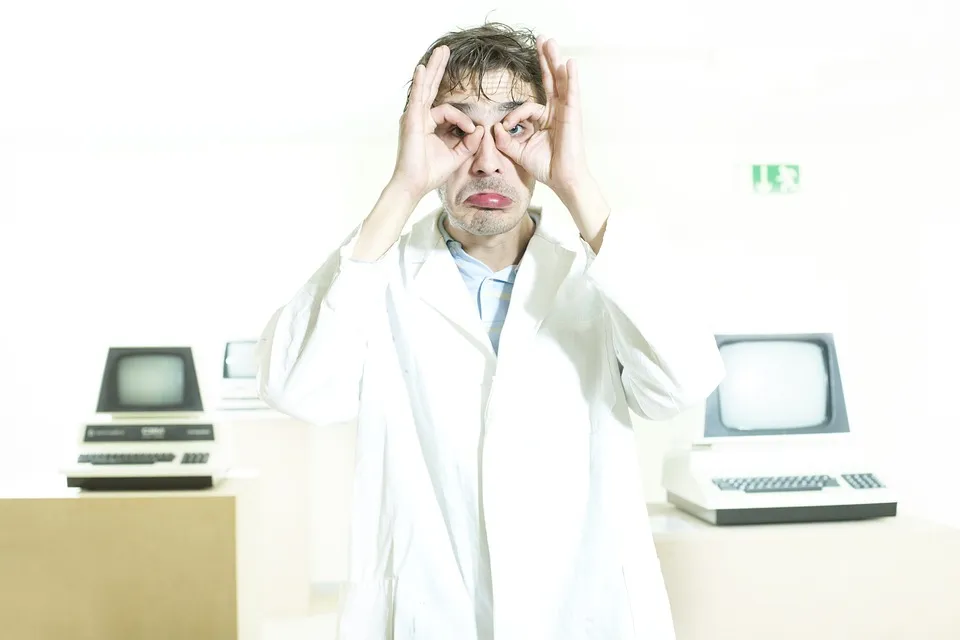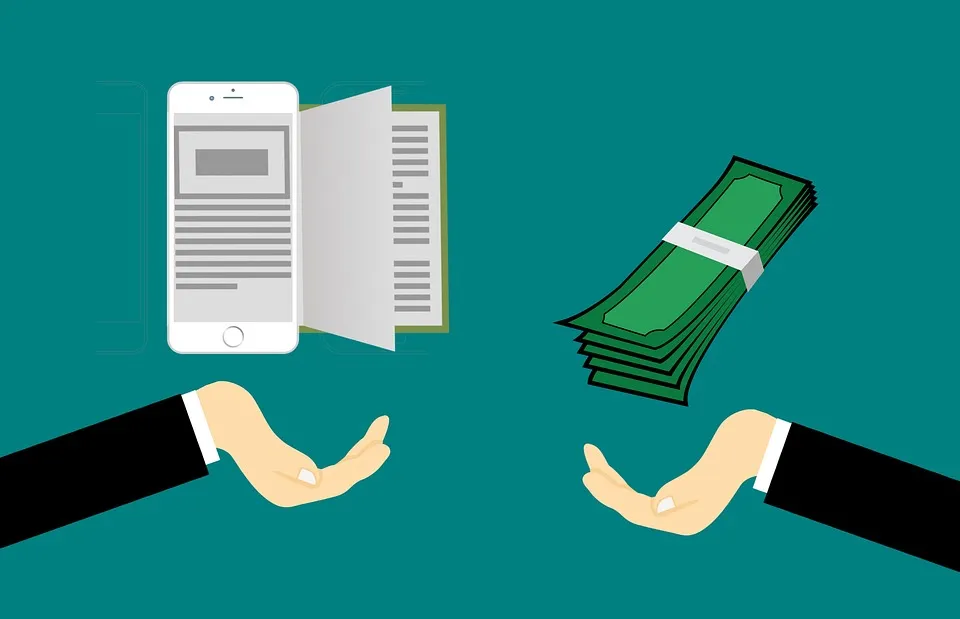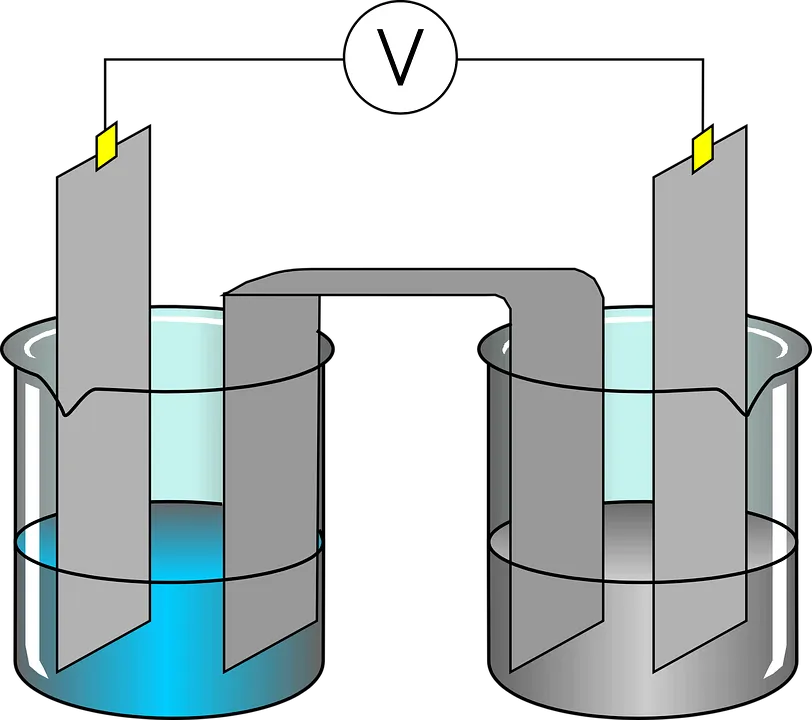I work as a scientist in an academic institution and like many people in the field, sometimes I ask myself questions. Sometimes these questions are inherent to scientific disciplines like biology or engineering and sometimes they are about life. It’s not easy to be a scientist, especially in academia.

It’s not just because of the difficulties encountered during experiments (especially when you do something that has never been done before you have to figure everything out by yourself) or being constantly under pressure to get more funding to continue doing research. It’s also because there is often a lack of fairness and often you are not being appreciated for what you do. Or at least not while you are alive (see Galileo or Mendel).
But, in parallel to this, there are people that manage to reap incredible profits exploiting the work of scientists. So, the question is:
How is it possible that often smart people in science are so bad at making money from their work?
Not only this, but there is generally a stigma associated with making money while doing science, so often scientists are expected to work for free.

Anyway, let’s look at the other side of things and let’s see who makes big profits using science while scamming people:
Science publishing industry
This probably one of the most outrageous examples. These so-called “journals” make profits at least in 5 ways:
• They receive subsidies from governments for their services, yet they charge the public for them
• Universities have to pay extortionary fees to access papers, even the ones they publish themselves
• They charge the authors publishing fees, they range from 1,000$ to 4,000$ per article
• They charge the public to access these papers, generally, it’s about 30$ per article
• They make money from advertising

At the same time, they save money by:
• They ask scientists to review submitted manuscripts, they don’t pay scientists for their time so it’s free labour
• They ask scientists to be editors of their journals. Scientists than lend their authority to give legitimacy to the journal while at the same time having to solicit other scientists to publish on these journals. Again, the scientists are generally not paid for this
• Research is expensive, yet Journals don’t spend anything to support scientists in their research, it’s all publicly funded research yet the results are often not accessible to the public
• They don’t even print anymore their articles (yet they still charge printing fees for each colour image in the paper), most articles are available in digital format.
This is a multi-billion dollars industry, yet it doesn’t pay people that work in it. The funding agencies for science should require that science funded with public money should be available freely to the public. Yet, they allow this scam to go on.
Nutritionists and homoeopathy
Scientific knowledge is free (or should be) and we all pretty much know what we should and should not do. Yet, we fall for people that overcomplicate science. Their job is to infuse mystery into science. In other words: they professionalize the obvious. They transform science into a monolithic entity, rather than a method used to test hypotheses.
There is a whole multi-billion dollar industry that tries to sell you dietary supplements with questionable real health benefits.
When they don’t find real scientific evidence they just make-up some. One example is the homoeopathic industry. It relies on pseudoscience or on badly designed scientific studies. They claim that by diluting something an infinite amount of times we can still retain their health benefits while decreasing their toxicity, all because they think that water has a memory. If that’s true, so why don’t just drink tap water? Molecules have been definitely diluted an infinite amount of times in tap water and you can find any "memory" of molecules you need (in the US if you drink tap water you may actually drink a small amount of drugs, in some States anti-depressants are so widely used that they can be found in tap water, reference ).

Truth is, what they observe is the placebo effect. If you were to give a sugar pill to someone and tell him that it will make him feel better, it probably will. The placebo effect it’s actually very powerful. You can even do the opposite, if you tell people that the sugar pill contains a poison, they may even develop the symptoms of the poison. Also, when pharmaceutical companies simply change the color of their pills there are patients that claim side-effects even when the pharmacological molecule contained is the same (reference). Remember that your mind can regulate the release of different hormones, so your state of mind will likely influence your health.
Cosmetics and detox treatments
There is a lot of money to be made from non-sense, and in this industry, there are definitely plenty of examples. One example is the so-called detox bath. They work like this: they will tell you that their special bath will be able to free your body from toxins that you accumulate in your stressful daily life. You can already tell that this is bullshit because they would not be able to name a single toxin that can be found in their bath after the treatment. But they have also orchestrated a smart story to fool you. Basically, in the bath, there will be salts like NaCl and electrodes consisting of anodes and cathodes. They will basically separate ions in a solution based on their charge in a process called electrolysis. This will cause Cl to be released as a gas and some of the other ions in solution will cause the solution to change colour. You will be impressed because they will tell you that the smell and the change in the colour of the water are due to the toxins that have been released from your body and nobody will dare question it. If you were to run a test and not enter the bath at all, you would see the water changing colour and smell the Cl in the air.

Cosmetics is another big one. One very popular product is the moisturizing cream (your girlfriend or wife may have some at home). Here the goal is to hydrate your skin. The good news is that most creams actually do that fairly well, the bad news is that they probably ripped you off because you don’t need expensive creams to do that. Simply Vaseline would do the job, but if you don’t want to deal with greasiness you can simply make an emulsion by mixing water, oil and bees-wax or honey. Companies will also add a lot more crap to convince you their product is more effective and inflate their prices. Some creams even claim to have special DNA added in them to help your cells make more collagen. Remember that our skin is designed as a defence mechanism and it’s an almost impermeable barrier. Large molecules like DNA or other proteins may not even pass through your skin.
Generally, in science when you have a hypothesis you want to test it. The easier way to do it is by designing an experiment with the right controls. Save yourself some money and pain and next time someone wants to sell you a miraculous product or treatment use https://scholar.google.com/ or https://www.ncbi.nlm.nih.gov/pubmed/ to check if there is any peer-reviewed article about it and make sure that whoever published had also the right control groups. For example, you will find that articles homoeopathic journals will often lack appropriate control groups.
* To visualize this post correctly please open it with the steemstem front-end: https://www.steemstem.io/#!/@aboutcoolscience/the-science-of-scamm-1564366606
References:
- https://www.researchgate.net/profile/Kelly_Reynolds2/publication/265424929_Pharmaceuticals_in_Drinking_Water_Supplies/links/54da435a0cf2ba88a68c29c8/Pharmaceuticals-in-Drinking-Water-Supplies.pdf
- https://www.bmj.com/content/313/7072/1624.short
- https://en.wikipedia.org/wiki/Electrolysis